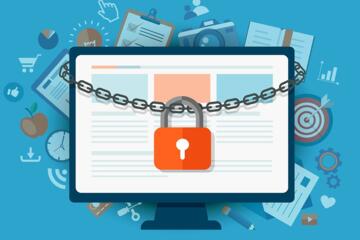The biggest cybersecurity risk today isn’t a high-tech hacker — it’s bad password habits. Most people reuse the same password across multiple sites. If even one of those sites is hacked, your other accounts become vulnerable in seconds.
Common issues:
-
Weak or guessable passwords
-
Reusing the same password everywhere
-
Storing passwords in unencrypted notes or browsers
-
Forgetting passwords and resetting them constantly
Password managers offer a real solution to these everyday problems — and they’re easier to use than you might think.
What Is a Password Manager?
A password manager is a secure app or browser extension that stores all your passwords in one encrypted place. You only need to remember one master password, and the manager takes care of the rest — filling in login details, generating strong passwords, and even alerting you to breaches.
Think of it as a digital vault: one lock (your master password) with dozens of keys (your saved logins) inside.
Top Benefits of Using a Password Manager
1. Create Strong, Unique Passwords Instantly
Good password managers generate random, complex passwords that are almost impossible to guess — and you don’t have to memorize them. Examples like @r9Tz!fVq2$k might seem ridiculous to remember, but that’s the point — you don’t have to.
2. Stop Reusing Passwords Across Accounts
Each login can have its own unique password, drastically lowering your risk. Even if one site is compromised, the rest stay safe.
3. Access Passwords Across All Devices
Most managers sync across your phone, tablet, and computer. Forgot your Netflix login on your smart TV? Open the app, copy it with one tap, and you’re in.
4. Auto-Fill Login Forms Quickly and Securely
No more typing out 16-character passwords or hunting for sticky notes. Password managers fill in your credentials in seconds.
5. Monitor for Data Breaches
Many managers include breach alerts. If your login info appears in a known leak, you’ll be notified immediately so you can change it.
Popular Password Managers to Consider
Here are a few trusted options to start with:
-
Bitwarden: Open-source, secure, and has a free plan that covers most needs.
-
1Password: Intuitive design, family sharing, and strong security features.
-
Dashlane: Includes a built-in password health checker and dark web monitoring.
-
LastPass: Easy to use, with both free and paid versions (note: check current terms, as features may vary).
Tip: Choose one that works well with your preferred browser and devices. Most offer free trials — try a couple before committing.
How to Get Started in 4 Easy Steps
Step 1: Choose Your Password Manager
Pick one that matches your needs and install it on your devices.
Step 2: Create a Strong Master Password
This is the only password you’ll need to remember. Make it long and unique — think of a memorable phrase rather than a single word.
Example: “MyDogEatsTacos@Midnight!”
Step 3: Import or Add Existing Passwords
Most managers can import saved passwords from your browser or let you manually add accounts over time.
Step 4: Start Generating and Updating Passwords
As you log into sites, replace weak or reused passwords with stronger ones. The manager will save them automatically.
Common Concerns (and Why They’re Manageable)
“What if the password manager gets hacked?”
Most reputable managers use zero-knowledge encryption — meaning even the company can’t see your data. Your vault is encrypted and only unlocked by your master password (which you never share).
“What if I forget my master password?”
Some apps offer recovery options like biometric unlock or backup codes. Write your master password down and store it somewhere safe — just like you would a physical safe key.
“Is it really worth the effort?”
Yes. Once you set it up, it saves hours of time and stress in the long run. It’s a one-time change that boosts your security every single day.
Final Thoughts: Make Security a Habit, Not a Headache
Passwords aren’t going away anytime soon — but your password problems can. Using a password manager simplifies your digital life while dramatically improving your online security.









